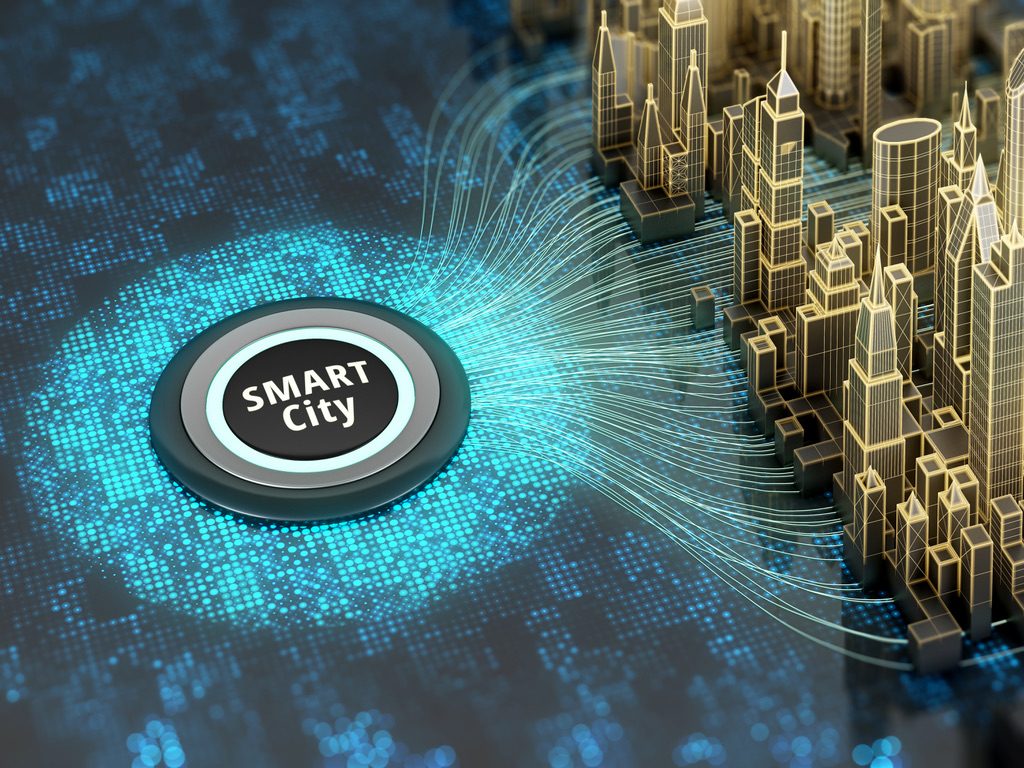
- Advanced technology can play a significant role in managing efficient urban development and population growth.
- Interoperability needs to be considered from three perspectives: business model, platform and infrastructure.
- Independent smart cities will not be enough, but it is essential to ensure openness and co-ordination among multiple smart cities.

The emergence of societal issues associated with expanding urbanization at the same time as the growing need to reduce public budgets are two of the primary reasons why smart cities are gaining so much attention.Expectations are rising for smarter cities and with the economic downturn caused by COVID-19, there is a need for more efficient urban management than ever before. Between 2020 and 2024, the smart city market, including the segments of energy, healthcare and security, is expected to grow at an annualized rate of 23%, amounting to approximately $2.1 trillion.
Advanced technology, including blockchain can play a key role in solving these societal issues and achieving efficient urban management. Blockchain enables network participants to exchange data with a high degree of reliability and transparency without the need for a centralized administrator. Cities have a variety of stakeholders and the exchange of data among stakeholders is essential for highly convenient urban services.
One important point to remember is that for smart cities to contribute to solving societal issues and to operate efficiently while improving the quality of services, it is not enough to have independent smart cities. Rather, it is essential to ensure interoperability and co-ordination among multiple smart cities.
Navigating the challenges from a city to a Smart City
Globally, countries are experiencing increasing levels of urbanisation, while major cities are becoming magnets for top talent and businesses, resulting in these cities being a major driver for economic growth. But this comes with the risks of increased congestion and environmental issues. Increasing population numbers in cities bring with it, the issues of greater demand for resources, greater pressure on urban infrastructures, increased demand for public services, and more pressure on the natural environment.
The need for Smart Cities, supported by connected technologies, is growing. The economic downturn caused by the COVID-19 pandemic showed how there is a need for more efficient and reliable urban management. Advanced technologies such as blockchain can play a key role in addressing these societal issues while also achieving efficient urban management.
In order for efficient urban services to be delivered, it is crucial for a city to ensure that effective data exchanges are conducted between the many different city stakeholders. Blockchain enables network participants to exchange data with a high degree of reliability and transparency, without needing to depend on a centralised administrator. “autonomous buildings” are ultra-efficient, fully electric, perhaps using solar panels to supply power, and can be managed remotely.
Applications of Blockchain in Smart Cities
Because a Smart City is a collection of industries and stakeholders interacting with one another, we have selected a handful of application areas. The application of blockchain technologies are specific for each application area, but when combined, can be viewed as the building blocks for a smart city.
Smart Energy
Smart Mobility
Public Administration and Services
Smart Cities and blockchain technology are still in their early stages of development. Both concepts are very broad and incorporate multitudes of stakeholders, systems, and processes. Significant progress and breakthroughs can be expected from both fields in the near future as more technological advancements are made and more people adopt the concepts of a Smart City and explore the possibilities of blockchain technology. New technological innovations will result in newer opportunities for applications into various ecosystems that form part of a Smart City and blockchain can lead this innovation with its far-reaching applications into various industries.
